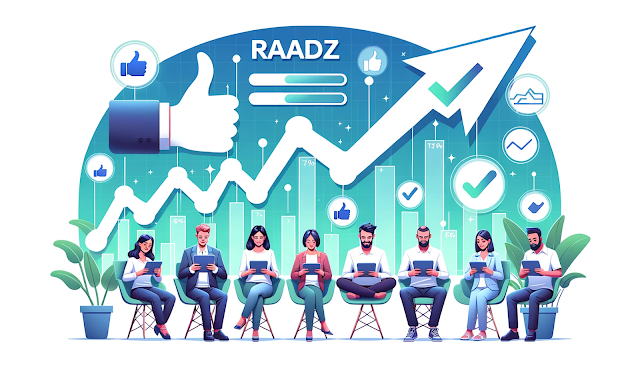Unveiling Controversial Opinions: RAADZ's Pioneering Approach to Honest Survey Responses
Public discourse on controversial topics can often be fraught with fear—fear of judgment, of societal backlash, of getting "canceled" for expressing unpopular viewpoints. These fears stem from an increasingly polarized society where there is often little room for divergent opinions. Traditional surveys, while designed to capture honest responses, are not immune to this dynamic. It's called the social desirability bias, where individuals modify or hide their true views to align with what they perceive as socially acceptable. This fear-induced conformity lessens the quality of survey data, as it veils the true diversity of public opinion.
Enter RAADZ, a unique survey platform that breaks down these barriers to honesty and invites open expression, even on contentious issues.
The Psychology Behind the Fear
At the root of the lack of honesty in traditional surveys lies two interconnected factors: the fear of social consequences and the desire to conform to perceived societal norms. This fear intensifies, particularly on controversial topics, as individuals fear social isolation or punitive consequences. They would rather keep their genuine opinions to themselves than risk negative repercussions.
Moreover, people inherently desire to fit into their communities. They tend to believe their opinions are the "norm" due to a psychological phenomenon known as the False Consensus Effect. Therefore, when societal or community norms appear to disagree with their views, they often choose silence or conformity over honesty.
Harnessing Fear and Conformity with RAADZ
RAADZ, recognizing these psychological nuances, takes an innovative approach to gather more honest survey responses. Its strategy is simple yet ingenious: it gamifies the survey process, asking respondents to predict the average answers to questions.
While this may seem like a fun game, it subliminally employs the False Consensus Effect to extract more honest answers. When attempting to predict the average, respondents draw on their beliefs, values, and opinions, presuming them to be widely shared. As they are not directly stating their opinions, the fear of backlash is diminished. This subtle shift in the survey-taking process encourages respondents to share their true thoughts indirectly.
Going Beyond Traditional Survey Limitations
RAADZ successfully overcomes the primary barriers of traditional surveys by injecting an element of fun, offering rewards, and most importantly, reducing fear. Here's how:
Amplifying Response Rates
Traditional surveys can often feel monotonous and uninteresting. RAADZ changes this narrative by gamifying the survey-taking process, making it an engaging, interactive experience. Respondents become players, and the prospect of rewards amplifies their interest, leading to increased participation and richer, more diverse data.
Countering Self-Selection Bias
Conventional surveys often draw more responses from those with strong opinions or vested interests, leading to self-selection bias. However, by transforming the survey into an enjoyable game, RAADZ pulls in a broader demographic, thereby diversifying the opinions collected and reducing the bias.
Diminishing Social Desirability Bias
RAADZ's biggest triumph lies in its ability to alleviate social desirability bias. By creating a safe space where respondents predict the average opinion rather than expressing their own, the fear of negative repercussions is minimized. This leads to more honest representation of views, even on contentious topics.
Conclusion
RAADZ's unique methodology fosters an environment conducive to the honest expression of opinions. It leverages innate psychological tendencies to break down barriers and unveil the true spectrum of public opinion on even the most controversial topics. This breakthrough in survey methodology enhances the integrity of data and enriches our understanding of societal perspectives. As we navigate through times of deep polarization, platforms like RAADZ, which promote open dialogue and honesty, are not just innovative; they are essential.
#SurveyInnovation #BreakingBarriers #HonestyInData #UnveilingOpinions




Comments
Post a Comment